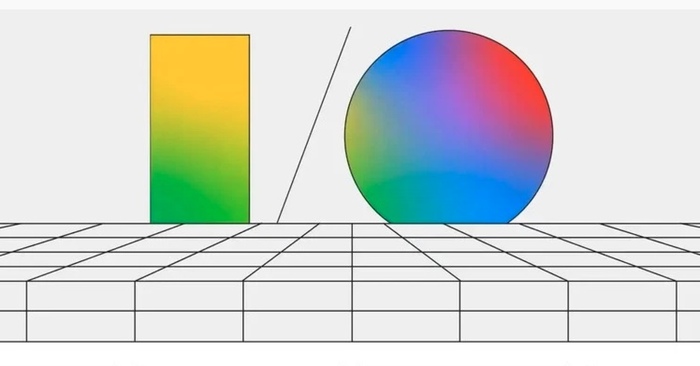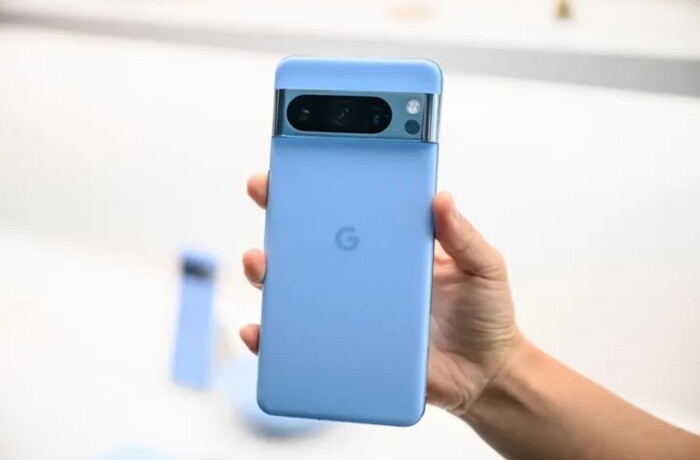Enlarge image
Two models, six colors: the new Pixel 6 smartphones
Photo: Google
SPIEGEL:
Mr. Osterloh, you will be introducing new pixel smartphones this autumn.
For this purpose, Google has developed its own system on a chip (SoC), or, to put it casually, its own processor.
Why?
Osterloh:
With off-the-shelf products, we constantly reached our limits and were severely limited in our ability to innovate.
That is why we started developing a SoC four years ago, a chip that combines all the essential functions of a computer.
The focus was on supporting Google's artificial intelligence (AI) technology.
SPIEGEL:
What does that mean for your new smartphones?
Osterloh:
Smartphone functions such as image recognition and speech recognition require artificial intelligence and machine learning. Much of this can no longer be done with conventional chips. A few years ago we developed a chip called the Tensor Processing Unit, or TPU, to use AI on a large scale in our data centers. This chip delivers far more power than conventional processors for such tasks. Now we have developed such a processor for smartphones so that Google's machine learning and AI software can run directly on the mobile phone. So we developed a mobile AI computer. This is a huge step forward for our pixel smartphones.
SPIEGEL:
What role did the expiry of Moore's Law, which predicted a regular doubling of processor performance, play in your decision to develop your own chip?
Osterloh:
The computing power of computer chips no longer doubles every 18 to 24 months.
This means that computers have to be developed that can perform specific tasks and have specialized components for them.
Our TPU is such a component because it is particularly suitable for Google's AI.
We integrated this TPU into a SoC that contains all the usual elements of a computer system, but is designed so that machine learning and AI have top priority.
SPIEGEL:
And is this chip going to be used for the first time in the new Pixel cell phones?
Osterloh:
To be more precise, in the Pixel 6 and Pixel 6 Pro, which we will be introducing in the fall.
In addition to the new chip, both will have the Android 12 announced for autumn on board, which brings a new user interface and a new design.
A camera module protruding over the entire width of the device will contain improved photo sensors and lenses.
The Pro model is also equipped with a telephoto lens and 4x optical zoom.
SPIEGEL:
What role does the TPU chip play in this?
Osterloh:
What I can reveal today are significant improvements and innovations in photos, video and speech recognition.
With Tensor, for example, we can further improve computer-aided photography.
With machine learning, photos come much closer to what we see with our eyes.
Videos are also complicated and require a lot of computing power, which is why we have not yet been able to use our sophisticated machine learning for this.
This is possible with Tensor. Thanks to the new chip, we can also optimize speech recognition.
For example, you will be able to have English subtitles generated in real time for a video in French - on the device, without an Internet connection.
more on the subject
Google Developer Conference: This is new for Android 12 by Matthias Kremp
SPIEGEL:
What will the new smartphones cost and when will they be on the market?
Osterloh:
We will only name prices and the date of the start of sales as well as all functions and technical data when the devices are presented.
So far I can only say: they will be on the market in the fall.
SPIEGEL:
Google has been selling its own smartphones since 2010.
Are the new devices an attempt to gain market share in the premium segment?
Osterloh:
We weren't represented in the smartphone flagship segment in the past two years - and not really before that either. But the Pixel 6 Pro, which will be expensive, was designed specifically for users who want the latest technology. This is an important new approach for us and we believe it will help us be attractive in new market segments. But the Pixel 6 also belongs in the upper segment and can keep up with competing products. I would call it a "mainstream premium product".
SPIEGEL:
The Google parent company Alphabet doesn't give any figures on smartphone sales.
So far, it is estimated that less than ten percent of group sales have been generated with smartphones.
It was once said that Google's smartphone business should be "huge".
Is that still the goal?
Osterloh:
If that weren't the goal, we wouldn't have made the effort to develop the tensor.
We definitely believe that we now have the right products for significant growth.
We will invest a lot in marketing, sales and the supply chain.
We were new to the market, a challenger - and now we have all the key elements to be successful.
But it's a mature market, so you can't grab a large share of the market overnight.
It takes a long time.
more on the subject
Fewer devices announced: global chip shortage reaches Apple and Microsoft
SPIEGEL:
Speaking of supply chains: The global chip bottleneck is also putting computer and cell phone manufacturers under pressure.
Could that also affect the new Pixel 6 smartphones?
Osterloh:
The delivery bottlenecks are a huge problem.
But we believe that we have the matter under control and can deliver the devices as planned in the autumn.







